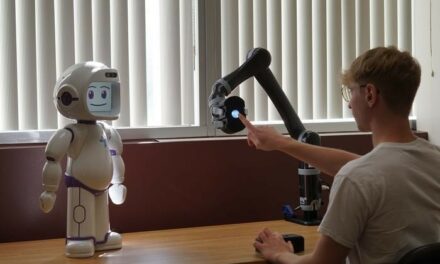 Following reportedly positive results from a human trial designed to test progesterone as a treatment for traumatic brain injury (TBI), Donald Stein, PhD, neuroscientist, Emory University, announces that he is now expanding his scope to test whether the hormone may hold promise in other conditions including stroke, pediatric TBI, and brain tumors.
Following reportedly positive results from a human trial designed to test progesterone as a treatment for traumatic brain injury (TBI), Donald Stein, PhD, neuroscientist, Emory University, announces that he is now expanding his scope to test whether the hormone may hold promise in other conditions including stroke, pediatric TBI, and brain tumors.
“Seeing our work in worldwide clinical trial is exciting, but what would really be gratifying would be to know that the work we did actually ended up helping a lot of people to live more healthy and fulfilling lives,” Stein says.
According to an Emory University news release, progesterone’s ability to work at multiple genes, multiple pathways, and multiple receptors may succeed where other drugs designed to target one gene, one pathway, or one receptor, have failed. Stein notes that the developmental hormone can act as an agent, blocking toxic events and also stimulating regenerative repair.
During the 100-patient phase 2 trial, David Wright, MD, FACEP, PhD, associate professor in emergency medicine, reports that researchers saw a 50% reduction in death in the treatment group. “In a certain subgroup, we also saw functional improvement. That shifted the while curve from keeping people alive to actually making them better,” Wright explains.
The release notes that the next steps in Stein’s research will be in collaboration with the Pediatric Emergency Care Applied Research Network and centers on the impact of progesterone in younger TBI patients. “There is currently very little that can be done for children with severe brain injuries—that’s a wide open field. But we need to make sure if we are working with a powerful developmental hormone it’s going to be as safe and effective in kids and not produce any outward effects. This work is still in very preliminary stages,” Stein emphasizes.
Stein’s research using progesterone to treat stroke victims has shown greater progress, the release notes. The results suggest that when rats were given progesterone following an induced stroke, they experienced 70% less brain damage than rats in the control group. The progesterone group also demonstrated 50% to 60% greater functional recovery.
The researchers articulate their hopes to complete their pre-clinical work and move the stroke study into human trials in the near future. Stein adds that progesterone promises to offer an even more profound influence on stroke than TBI.
Source: Emory University





